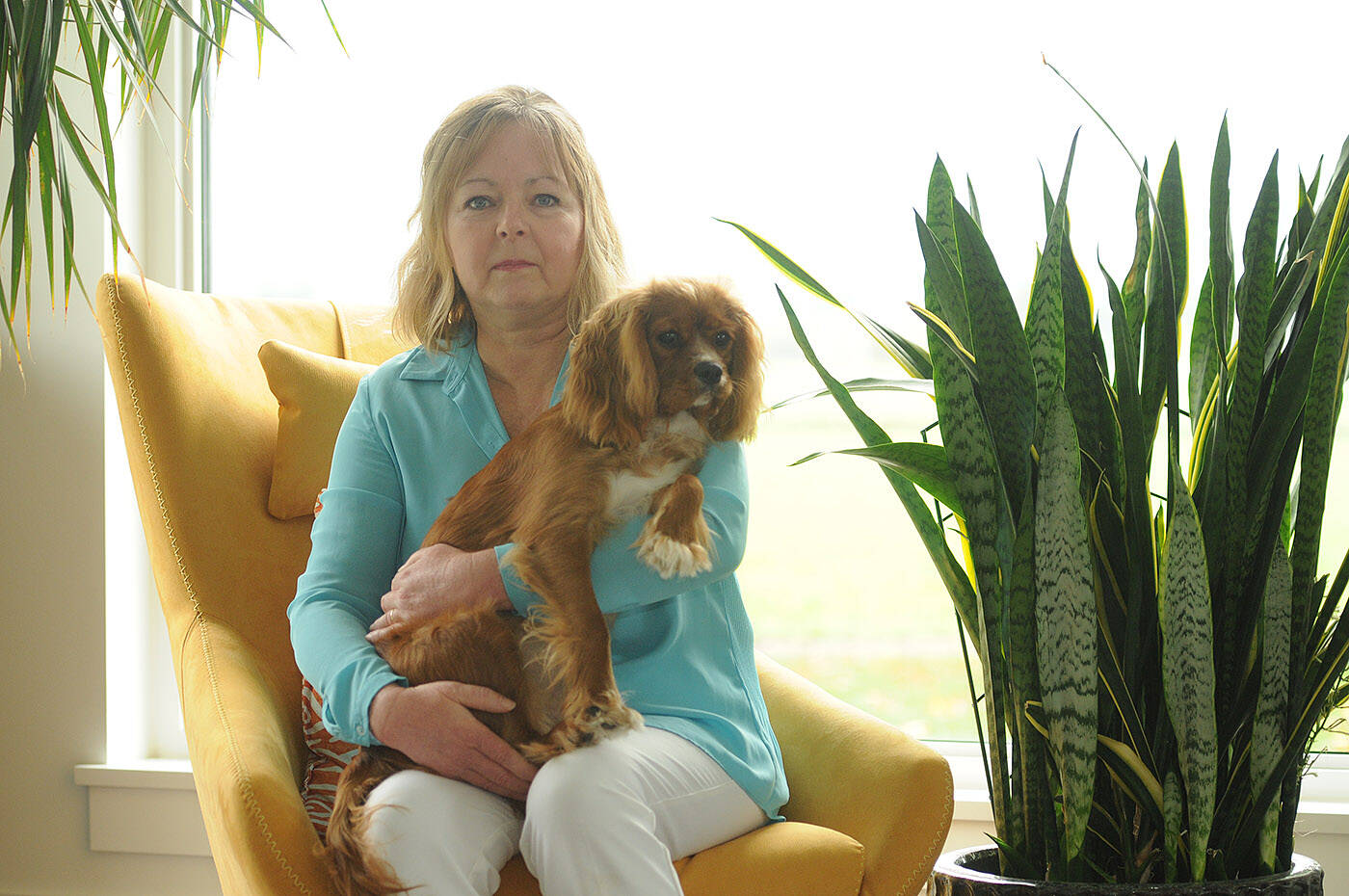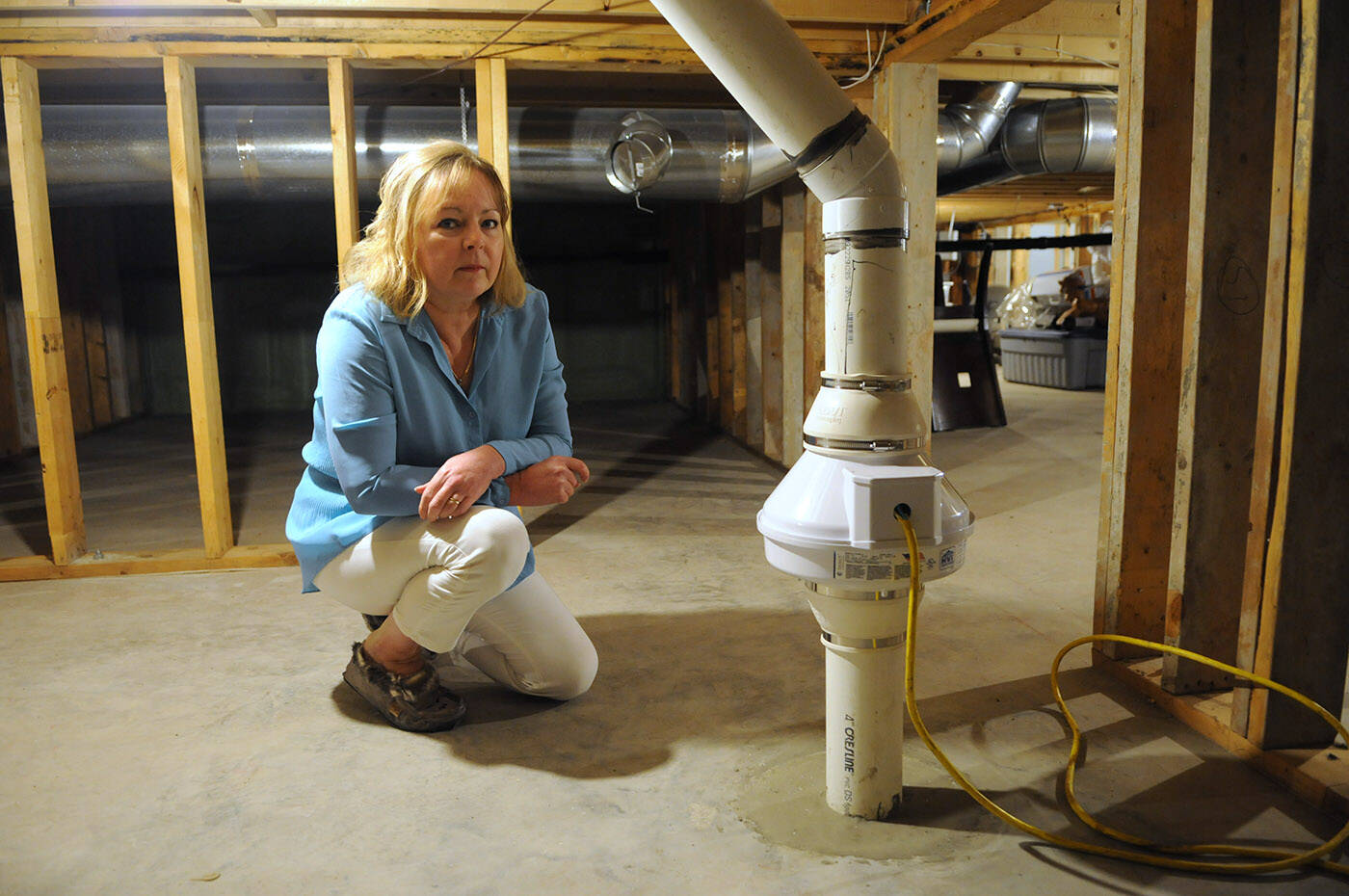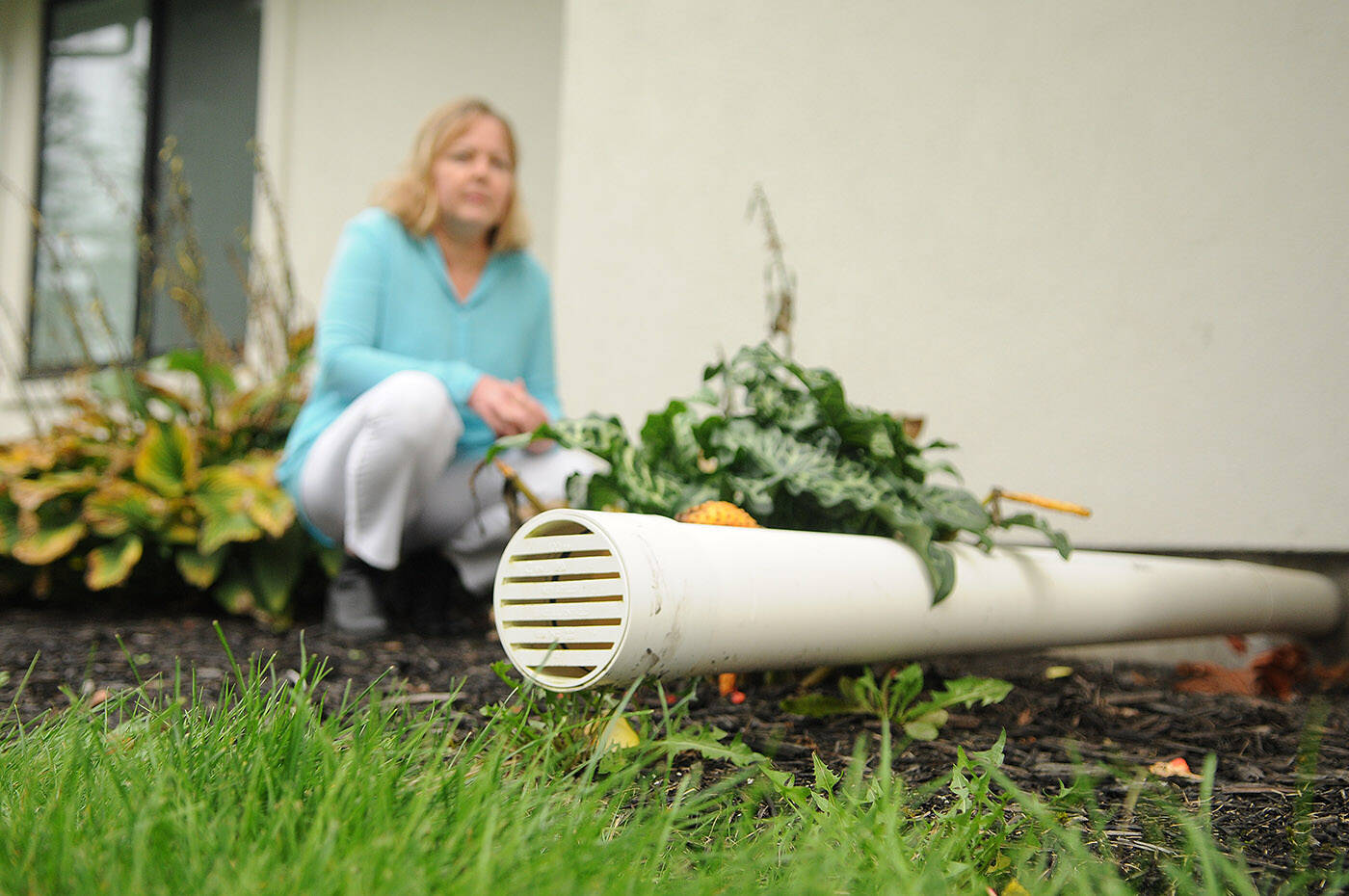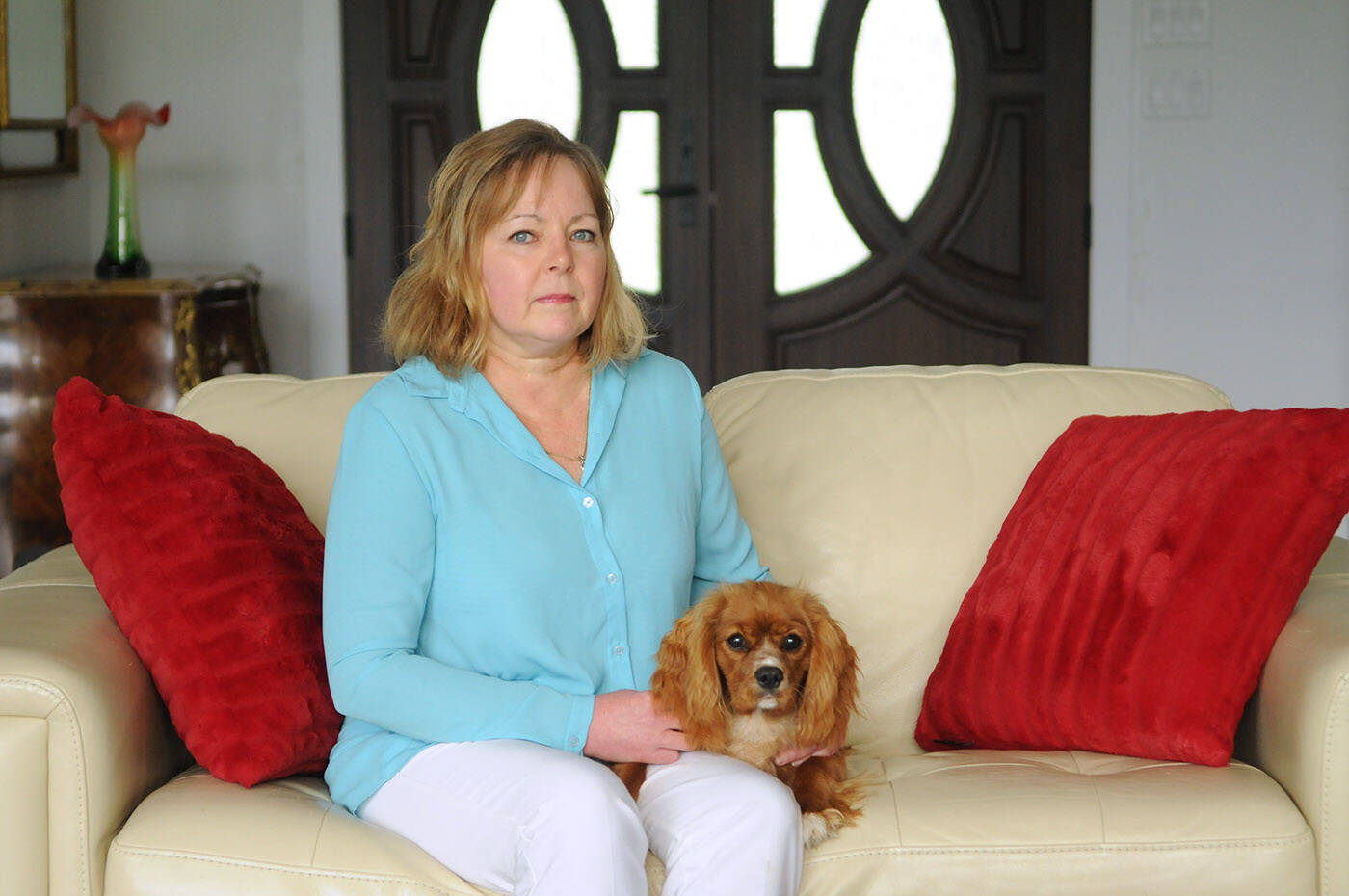A Chilliwack Realtor is urging Fraser Health to take a more decisive role in protecting the public from the risks of radon.
Jill Hall is a non-smoker diagnosed with lung cancer, who has been sounding the alarm after family and friends’ homes in the community were found to have higher-than-acceptable levels of radon.
Radon gas is the leading cause of lung cancer among non-smokers, and rates are rising globally.
Hall has been leading the charge, diving into the fray from behind the scenes after her brother found extremely high levels in his Chilliwack home.
She contacted health agencies and various levels of government, pushing for more testing, awareness, and changes to the building code to add roughed-in radon mitigation at the time of all new construction, after elevated levels were also found in buildings across the region.
Now Hall has set her sights on public health.
“I openly request that public health take swift action to equip at least 10 per cent of the homes in the Fraser Valley Regional District, and City of Chilliwack with radon measurement devices,” Hall wrote in a Oct. 16 letter to Fraser Health’s chief medical health officer.
They should also cover radon testing and resources “in our children’s schools, daycares, local universities, and hospitals on an urgent basis.”
Hall has a radon mitigation system installed in the crawl space of her Chilliwack home. These mitigation systems range in price from $2,500 to $4,000, and work with suction removing the air, and any radon gases, to the exterior with hoses.
“Given the sizable population of around 340,000, the number of homes tested remains insufficient. Notably, many of these homes have successfully undergone radon mitigation, a straightforward and highly effective process,” Hall added.
Her brother, Tony Gore of Gore Brothers Homes, was the driving force to get 150 homes tested initially, revealing readings up to 1000 becquerels per cubic metre (bq/m3) in at least one Chilliwack home, and high readings in 30 per cent of that sample.
Hall realized significantly more testing was needed, and that public health should step up to pay for some of the costs.
Elected officials like Coun. Chris Kloot has added his voice at the Chilliwack council level, and at the Fraser Valley Regional District (FVRD) board level, adding to the chorus of those seeking further action, the need for more radon testing and financial support for radon mitigation.
RELATED: City councillor sounds alarm on radon
Radon is a naturally occurring, odourless gas that seeps into homes from the ground and is linked to lung cancer.
When levels are between 200 and 600 bq/m3, mitigation efforts within two years are strongly recommended by Health Canada. A reading above 600 bq/m3 is considered a serious problem requiring an immediate fix.
Hall thinks these levels are too low, and that anything above 100 bq/m3 is too high.
She says she feels compelled to push for these actions from Fraser Health officials since part of the Public Health Act “explicitly underscores the responsibility of public health in health promotion, protection, and the prevention of exposure to known carcinogens,” she said.
The preliminary signs of “elevated radon levels” were subsequently confirmed by Take Action on Radon, an organization that partnered and supplied approximately 900 radon measuring devices with the City of Chilliwack and FVRD.
The Chilliwack Progress reached out to Fraser Health officials to get their response to requests for more radon testing, for financial support for testing/mitigation, and for a stronger public-health awareness campaign.
With radon being measured at higher levels in some parts of the region, “we do encourage people to conduct radon testing in their homes,” said Dr. Emily Newhouse, medical health officer for Fraser Health.
For about $50 a radon test kit can be ordered from the B.C. Lung Foundation, “it’s not as expensive as you may think,” the health officer said, and that includes lab fees.
While they do support citizens engaging in longer-term radon testing, the health authority has no plans to cover the costs of radon testing or remediation at this point, but it does promote some agencies that do.
“I think that one of the things that’s important to realize is that radon varies quite a bit – even within a particular region.
“So that’s why you have to test your own home to be sure. Even with the new data, most places in the Interior are at higher risk than this region. But that said, some individual homes tested at very high risk,” Newhouse added.
It’s also really important for smokers to understand that radon works synergistically with smoking to bump up the risk of lung cancer. The additional risk is much higher.
“So if you’re a smoker, it might be a reason to stop smoking, and to remediate your home to reduce risks even further.”
November is Radon Action Month, she underlined, and the plan is for Fraser Health to get some public-health messaging out to the public about the health effects of radon, and the importance of radon testing in the home.
“As you know there has been increased testing of radon, showing higher levels in the Eastern Fraser Valley than have been seen historically seen,” Newhouse confirmed.
“That represents a change. It was previously thought the risk was lower.”
The B.C. Centre for Disease Control had started a radon data repository years ago, and there was some data that suggested a lower risk, but it was from a smaller sample size, she said.
“I am really glad the new testing has been done,” Newhouse said. “Some of the outcomes from this include the data repository being updated, and the data actually informing policy changes at the provincial level.”
A requirement in the B.C. building code to have full-stack radon mitigation roughed-in at the time of construction for this region was being considered last year and it looks like it is going to go ahead.
“That’s an important policy change,” Newhouse stated. “I am glad the issue is getting more attention. People don’t think about radon a lot because it’s so silent. It’s easy to be unaware of it.”
Fraser Health is preparing to ramp up public communications and health messaging on their website, and social media channels, as they will be partnering with City of Chilliwack to roll out a radon awareness campaign for November as part of Radon Action Month.
Order a radon test kit from Take Action on Radon
Go to www.fraserhealth.ca/health-topics-a-to-z/air-quality/indoor-air-quality for more info.




